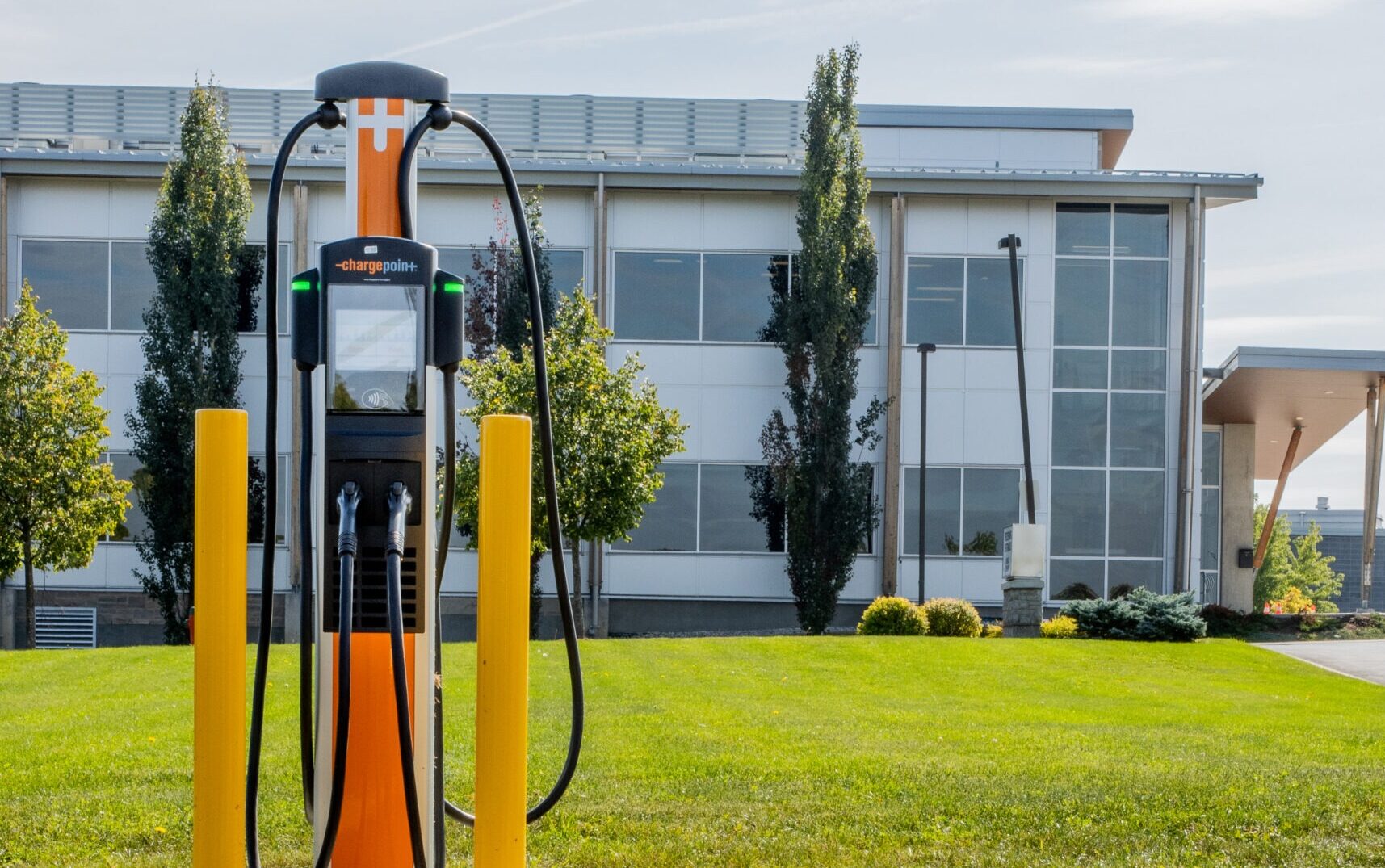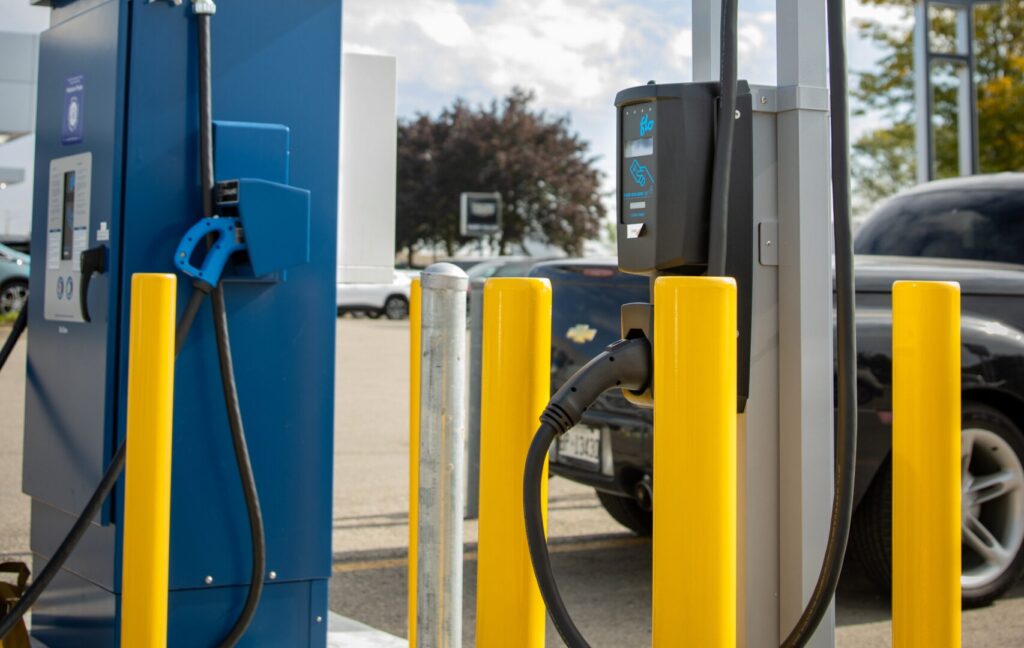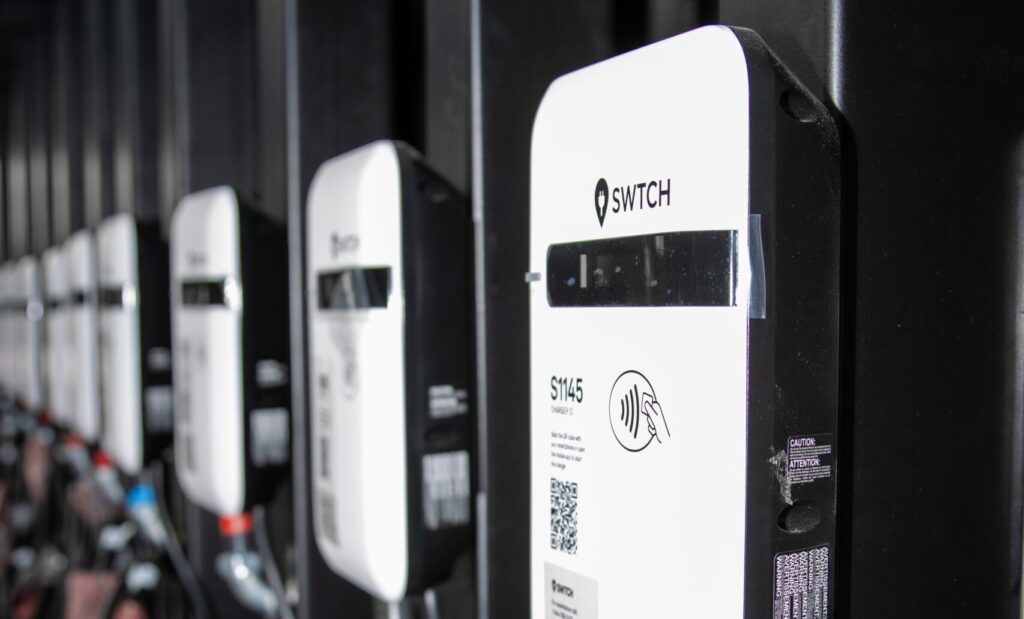TOP 10 THINGS A HOMEOWNER SHOULD KNOW BEFORE INSTALLING AN EV CHARGER
Most drivers in Canada are accustomed to gas or diesel powered cars, making the change to electric cars can be difficult and confusing. There are many questions involved in buying your first electric car and most of those questions are related to electric chargers. In this article, you will learn about 10 things a homeowner should know before installing an EV charger.
1. Are EV chargers universal? Do I need a specific charger depending on the model of my car? Do I need a specific cable?
Most EV chargers are universal and all of the types of EV charges, such as municipal, commercial, and residential don’t require specific cables to use, and all of them come with standard connectors. However, chargers are classified into three different levels: level one, level two, and level three. To make it as simple as possible, the difference is in the kilowatt capacity or how fast the charger can charge your car.
Level 1
120V circuit
The slowest kilowatt capacity, meaning the slowest charge. It can take from 12 to 14 hours to fully charge your cars battery.
Level 2
208V – 240V circuits
These are the most common chargers. On the residential side, level two EV chargers take from four to six hours to fully charge. For the municipal, commercial, and investor investment property style of application, you can expect a smaller number of hours to fully charge.
Level 3
480V – 1000V circuits
These are the fastest to charge and some of them are considered “fast chargers” if they are combined with a DC fast charger. They can take anywhere from 30 minutes to an hour to fully charge. These voltages aren’t found in residential housing and are limited to commercial applications.
It is important to take into account that Tesla cars are part of the exception for the universal EV chargers, most Tesla cars include adapters for their EV to work with universal EV chargers. It’s important to verify this at the time of vehicle purchase.
2. Can EV chargers be installed outside of my home? Does it affect the performance?
Many EV owners want to charge their cars at home. The question comes to mind “Should I keep the charger inside of my garage or outside of my home? Does this affect the performance of my charger?” And the answer to this is simple — no. There are no differences in performance between having the EV charger inside the home or outside. But there is a difference in the cost of installation.
Installation costs vary depending on the length of the cable required to go from where your electrical panel is located to where you want to car your car. The further this distance, the higher the cost in the base materials and it may require a longer installation process.
3. What are the best EV chargers on the market? Is there a brand you recommend?
If you want to avoid as many issues as possible with your EV charger, choosing the right brand is going to be extremely important. Anvil Crawler has worked with many of the top brands and these are the ones that we consistently see working the best and can recommend to any new EV owner:
ChargePoint
It’s one of the most popular EV charger brands. It’s easy to use and the chargers are universal.
FLO
This is one of the most popular options because of how easy it is to use. However, homeowners need to take into account that FLO charges a monthly fee to use their dashboard and portal, which can be an expense that many don’t account for. Typically FLO chargers are installed in rental units or high traffic areas or where the charger needs to be shared by multiple parties.
SWTCH
SWTCH offers EV charging solutions for multi-tenant properties both new and old. SWTCH is the trusted charger by some of the largest brands in the world.
Tesla
It’s one of the most popular brands when it comes to EVs. If your car is a Tesla, this is a must-have.

4. Do I need a permit to have an EV charger installed?
In Ontario, Canada, yes. It costs $150+HST to obtain. If Anvil Crawler is installing your charger, we can request the permit for you as it needs to be ready before the installation process can begin.
For other cities or countries, it’s necessary to check your laws to confirm if you need any permits.
5. What size panel do I need to have for an EV charger to be installed?
The short answer is, it depends. Some key factors include the amount of free breaker or fuse spaces. The overall size of the panel in amps. The other circuits that are already installed (stoves, hot tubs, secondary kitchens, and other major appliances). Depending on your situation you may require a panel upgrade. If you aren’t sure if your panel is big enough, you can email us at info@anvilcrawler.com and we can provide you with the information needed to install the desired EV charger at your home or place of business.
6. Is it code for a new home built in Ontario to have an EV charger?
While most houses don’t have EV chargers, it is required for new homes to have a 30 amp wire that goes back to the main panel in the garage. This wire is enough to install a level 1 EV charger on the property.

7. What makes you good at providing EV services?
We have worked with individual residential installations, multi-residential installations (such as apartment complexes, condos, and more), and commercial installations across the city of Guelph. Right now, we’re embarking on industrial building installations.
With more than 1000 EV charger installations across residential and commercial applications, our experience provides you with a unique insight into your best options regarding your EV charger.
8. How much does it typically cost to have the average EV charger installed?
There are a couple of factors that can increase or decrease the total price of an EV charger installation. For example, if you don’t have an EV charger, we can supply it ourselves. If you’re replacing an old charger with a new one or you want a faster charger installed, you may require a panel upgrade.
Typically installation varies on complexity but is often between ~$600.00 – $2,000.00 +HST
9. Does Anvil Crawler provide a warranty on their services?
We provide a 1 year workmanship warranty for all of our service offerings including EV charger installs. Equipment warranties depend entirely on the manufacturer’s warranty.

10. What should I know before contacting you to install an EV charger?
What factors do you need to understand before contacting an EV charger installer or an Electrician?
- The size of your electrical panel.
- The preferred location of the charger.
- How fast you want to be able to charge your vehicle.
While these are the most common questions homeowners have before installing an EV charger, there is more to know. If you want to learn more about EV chargers, our installation process, and the cost, don’t hesitate to contact us here.
